Fantasy Books
The Teller of Small Fortunes - Book Review
 The Teller of Small Fortunesby Julie Leong
The Teller of Small Fortunesby Julie LeongWhat is it about:Tao is an immigrant fortune teller, traveling between villages with just her trusty mule for company. She only tells "small" fortunes: whether it will hail next week; which boy the barmaid will kiss; when the cow will calve. She knows from bitter experience that big fortunes come with big consequences…
Even if it’s a lonely life, it’s better than the one she left behind. But a small fortune unexpectedly becomes something more when a (semi) reformed thief and an ex-mercenary recruit her into their desperate search for a lost child. Soon, they’re joined by a baker with a knead for adventure, and—of course—a slightly magical cat.
Tao sets down a new path with companions as big-hearted as her fortunes are small. But as she lowers her walls, the shadows of her past are closing in—and she’ll have to decide whether to risk everything to preserve the family she never thought she could have.
What did I think of it:This is such a good read!
I will confess I fell in love with the cover, and that's why I bought tis book. It turned out to be a Cozy Fantasy: as if your read is giving you a hug by being mostly nice, comforting, and happy.
I loved Tao and the people she meets and befriends. Especially Mash, the ex-mercenary is so awesome (and bearded mostly, although he should stop shaving entirely Voodoo Bride wants me to add).
There are of course some stakes to keep everyone moving, but I never worried, trusting that this book wouldn't disappoint me by suddenly being mean to me.
All in all a wonderful read, and I immediately bought an extra copy to gift a good friend for her birthday (because nobody gets to borrow mine!).
Why should you read it:Cozy Fantasy! So nice and huggable!
Goth Chick News: The Hairy Problem of Werewolf Movies
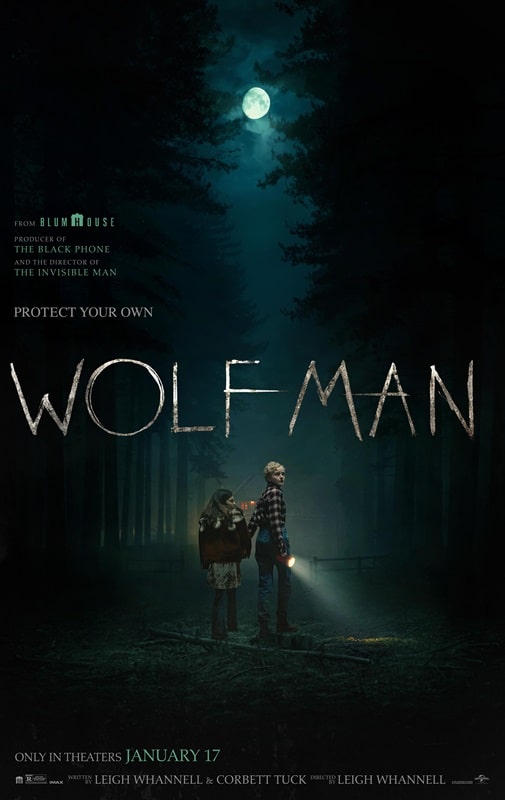 Wolf Man (Universal Pictures, January 17, 2025)
Wolf Man (Universal Pictures, January 17, 2025)
Why oh why can’t Hollywood produce a decent werewolf movie?
I’ve had my heart broken twice in the past few months, first by The Beast Within (2024) and most recently by Wolf Man (2025).
I first told you about The Beast Within starring Kit Harington, back in August. In summary, it was lousy. Though the trailer implied a suspenseful, cohesive tale, Beast was a rambling affair that didn’t seem to know what it wanted to be. As for an actual werewolf transformation, it was implied but never really materialized. Instead, director Alexander J. Farrell tried to distract us from this fact with a knee-jerking series of events that barely held together as a story. Even putting Harington half-naked in a dog collar wasn’t enough to make me forgive this mess.
So, if you tell me I should have known better when, with renewed hope, I ran off to the theater last weekend to see Wolf Man, I wouldn’t argue.
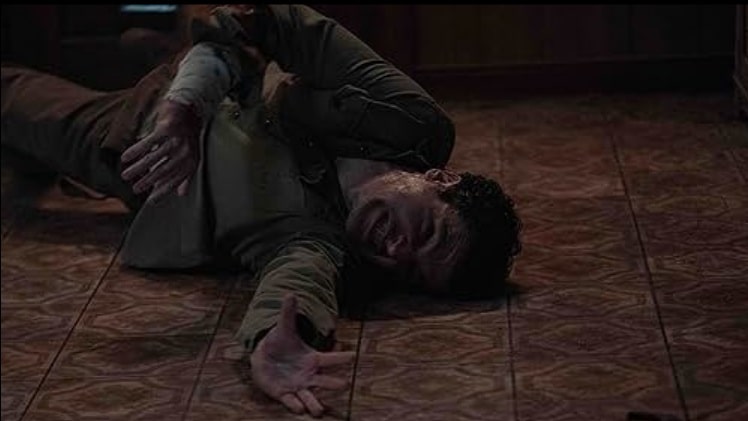 Wolf Man
Wolf Man
Making another attempt at revitalizing the classic monsters franchise ahead of opening its “Dark Universe” park in May, Universal Studios got behind this werewolf movie produced by Blumhouse, which made me think there was a chance it would be good. Afterall, it was Jason Blum who inspired Universal to give their Dark Universe movie franchise another go after Tom Cruise’s The Mummy was an unmitigated atrocity.
Universal had scrapped all the big-budget monster remakes they had teed up, which was more than fine with most fans, including me. Then here comes indie production company Blumhouse, hitting a home run with The Invisible Man (2020). Making nearly $145M on a $7M budget that’s a 20x return, meaning Hollywood couldn’t throw new projects at Jason Blum fast enough. When I heard Blumhouse had been handed the remake of Wolf Man (1941) I dared to be cautiously optimistic.
What a mistake.
I can count on one hand the number of times I’ve sat in a theater looking at my watch. I nearly always find something to love about most movies, but Wolf Man was so awful I would have got up and left had it not been for the tiny flame of hope I had that maybe the ending would redeem my two-hour investment.
It didn’t.
Here’s how Universal described Wolf Man:
Golden Globe nominee Christopher Abbott (Poor Things, It Comes at Night) stars as Blake, a San Francisco husband and father, who inherits his remote childhood home in rural Oregon after his own father vanishes and is presumed dead. With his marriage to his high-powered wife, Charlotte (Emmy winner Julia Garner; Ozark, Inventing Anna), fraying, Blake persuades Charlotte to take a break from the city and visit the property with their young daughter, Ginger.
But as the family approaches the farmhouse in the dead of night, they’re attacked by an unseen animal and, in a desperate escape, barricade themselves inside the home as the creature prowls the perimeter. As the night stretches on, however, Blake begins to behave strangely, transforming into something unrecognizable, and Charlotte will be forced to decide whether the terror within their house is more lethal than the danger without.
Sounds promising right? And for the first 20 minutes or so it kind of was. The dialog was lame, but the premise was interesting. En route to the childhood home in the middle of nowhere, the family gets into an accident and as they extricate themselves from the wreckage, the dad is bitten by an animal that runs off before they get a good look. Que the slow transformation of the dad into a werewolf which could have been awesome but instead was so drawn out and mind-numbingly boring it made me angry.
And come on – we had two fabulous werewolf movies back in the 80s in the form of The Howling (1981) and American Werewolf in London (1981), so someone in Hollywood must have kept the instructions on how to create a credible werewolf transformation with practical effects.
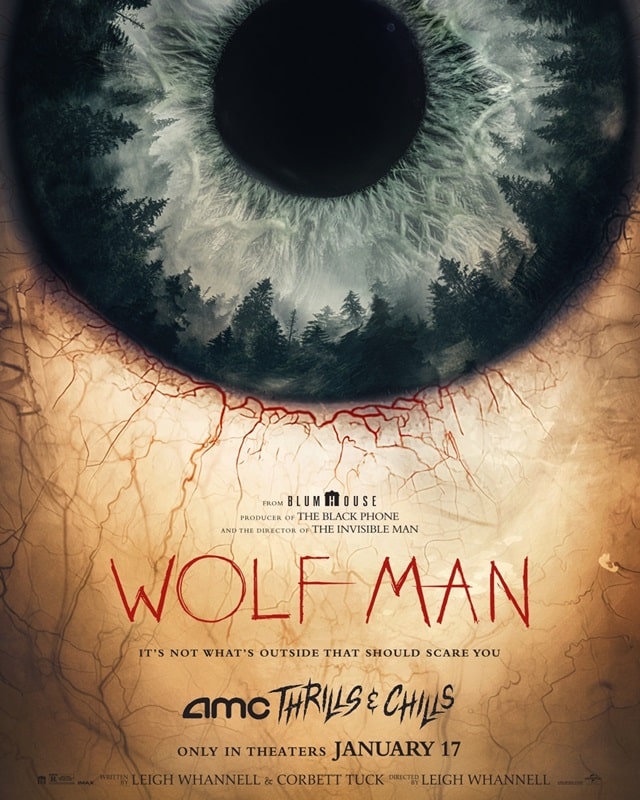 Wolf Man
Wolf Man
But no. Wolf Man not only failed in its plot and dialog, but it utterly and completely defecated the mattress in creating an even remotely interesting werewolf.
So why does Hollywood keep getting werewolves wrong? The answer might lie in their complexity. Werewolves require nuance, and filmmakers seem allergic to it. Moreover, there are considerable technical challenges of depicting a werewolf convincingly. While CGI can be incredible, the extreme overuse of computer effects has resulted in a bit of audience backlash, causing filmmakers to go back to practical effects which clearly can’t keep pace with a modern audience’s expectations.
Finally, there’s a lack of fresh ideas. Perhaps it’s time for filmmakers to take inspiration from outside the box—or at least hire a scriptwriter who doesn’t think “lycanthropy” is just a fancy word for mood swings.
Despite these missteps, there’s still a tiny glimmer of hope for us werewolf fans. Enter Robert Eggers, the visionary director behind Nosferatu (which I’ve seen multiple times and absolutely loved – more on that next week). Eggers has announced his next project, Werwulf, will be a period horror film that promises to blend folklore, psychological terror, and meticulously crafted visuals into the ultimate werewolf tale.
Fans of Eggers know his penchant for historical authenticity and atmospheric storytelling, which could make Werwulf the fresh take that the genre desperately needs. With Eggers at the helm, there’s genuine hope that audiences will finally get a werewolf film that balances primal horror with emotional depth.
Hollywood, the ball’s in your court. But for now, maybe leave the werewolves alone for a bit. They deserve a better cinematic fate than what they’ve had recently.
The Sword and Planet of Edgar Rice Burroughs, Part I
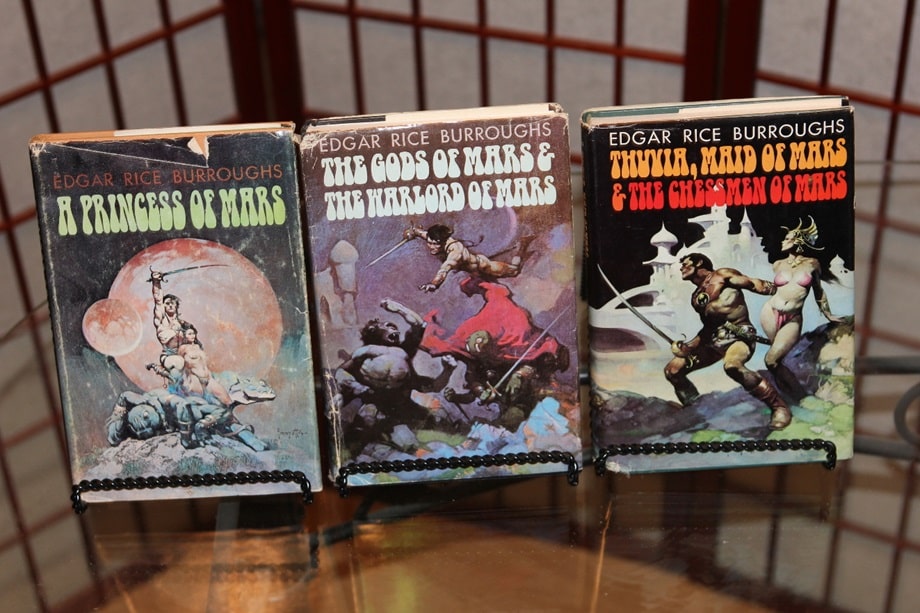 Edgar Rice Burroughs’ Barsoom novels: A Princess of Mars, The Gods of Mars and The Warlord of Mars, and Thuvia, Maid of Mars and The Chessmen of Mars (Science Fiction Books Club, July 1970, January 1971, and January 1973). Covers by Frank Frazetta
Edgar Rice Burroughs’ Barsoom novels: A Princess of Mars, The Gods of Mars and The Warlord of Mars, and Thuvia, Maid of Mars and The Chessmen of Mars (Science Fiction Books Club, July 1970, January 1971, and January 1973). Covers by Frank Frazetta
For sheer fun and adventure there’s nothing better in my opinion than Sword & Planet fiction (also called Interplanetary Adventure, Interplanetary Romance, or Planetary Romance). But exactly what is Sword & Planet fiction? Well, Edgar Rice Burroughs (ERB) created the prototype in 1911 with A Princess of Mars, which featured an Earthman named John Carter who is mysteriously transported to Mars, called Barsoom by its inhabitants.
The basic Sword & Planet story involves an earthman (rarely an earthwoman up to this point in time; 2025) on a strange world where he must use his wits, his muscles, and his sword against a host of human and nonhuman foes. The hero is generally chivalrous and the setting is an exotic alien world, often with multiple suns or multiple moons, populated by a variety of strange plants, animals, and intelligent beings. Magic is virtually non-existent, but there may be elements of “super-science,” such as open-decked flying ships or even ray-guns, although the latter take second billing to the blade. The emphasis is on swashbuckling sword fights, wild escapes, and desperate rescues.
[Click the images for Mars-sized versions.]
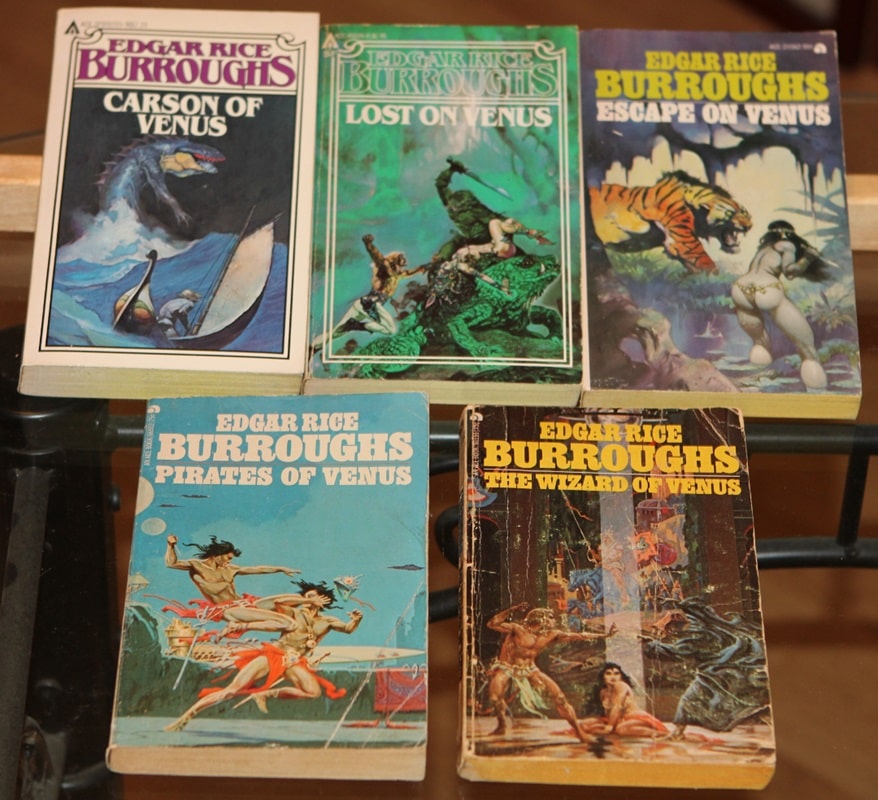 Edgar Rice Burroughs’ Venus novels: Carson of Venus, Lost on Venus, Escape on Venus, Pirates of Venus, and The Wizard of Venus (Ace Books, June 1979, June 1979, January 1974, March 1973, and January 1973). Covers by Frank Frazetta, Esteban Maroto, Frazetta, Roy G. Krenkel, and Roy G. Krenkel
Edgar Rice Burroughs’ Venus novels: Carson of Venus, Lost on Venus, Escape on Venus, Pirates of Venus, and The Wizard of Venus (Ace Books, June 1979, June 1979, January 1974, March 1973, and January 1973). Covers by Frank Frazetta, Esteban Maroto, Frazetta, Roy G. Krenkel, and Roy G. Krenkel
In addition to the Barsoom books, ERB also wrote a second Sword & Planet series, five books set on Venus (Amtor to the natives), featuring the earthman Carson Napier. Napier is intending to fly a rocket ship to Mars but ends up crashing on cloud-covered Venus.
He finds a world of giant trees and strange creatures, and, of course, a princess. Her name is Duare. Like Barsoom, Amtor mixes the primitive with super science, but the emphasis is on action, adventure, and personal combat with edged weapons.
 Escape on Venus, The Moon Men, Pirates of Venus, A Fighting Man of Mars, and The Chessmen of Mars (Ace Books, 1964, October 1962, January 1963, March 1963, and December 1962). Covers by Roy G. Krenkel, Ed Emshwiller, Krenkel, Krenkel, and Krenkel
Escape on Venus, The Moon Men, Pirates of Venus, A Fighting Man of Mars, and The Chessmen of Mars (Ace Books, 1964, October 1962, January 1963, March 1963, and December 1962). Covers by Roy G. Krenkel, Ed Emshwiller, Krenkel, Krenkel, and Krenkel
The five books in the series are:
1. Pirates of Venus
2. Lost on Venus
3. Carson of Venus
4. Escape on Venus
5. The Wizard of Venus
The Wizard of Venus is a novelette that wasn’t published until after ERB’s death. The book includes a second novelette called “Pirate Blood.”
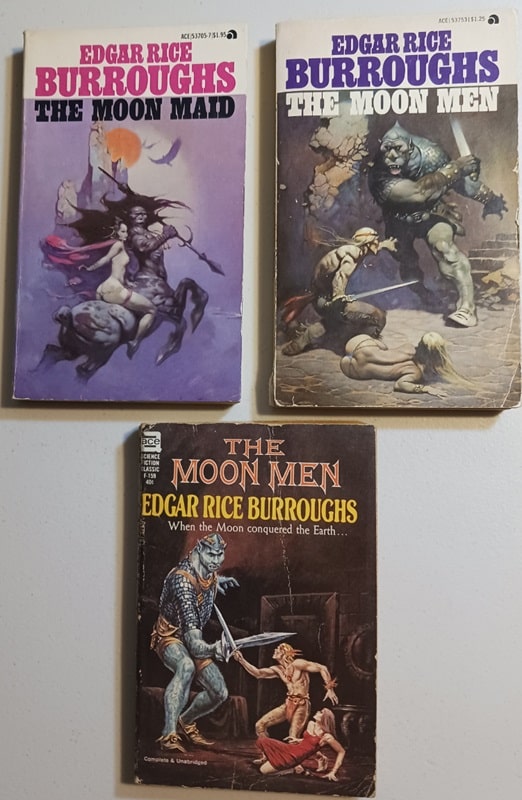 The Moon Maid, The Moon Men, and The Moon Men (Ace Books, January 1974, March 1974, and October 1962). Covers by Frank Frazetta, Frazetta, and Ed Emshwiller
The Moon Maid, The Moon Men, and The Moon Men (Ace Books, January 1974, March 1974, and October 1962). Covers by Frank Frazetta, Frazetta, and Ed Emshwiller
I enjoyed ERB’s Venus books a lot but they were not the equal of his Mars books — in my opinion. A lot of this has to do with Carson Napier. He’s no John Carter. He is a hero, and brave, but he makes plenty of mistakes and often needs to be rescued himself. He also uses more advanced weapons — essentially ray-guns — on many occasions. That means less “swashbuckling,” a minus for me. Certainly, though, if you’re interested in S&P fiction, the Venus books are a must.
The Venus books have been released in various editions. The pictures I have above mix older and newer editions. The older ERB books have covers and illustrations by Roy G. Krenkel, Jr, one of my favorite artists. Some of the newer ones have Frazetta images, and Frazetta was influenced by Krenkel.
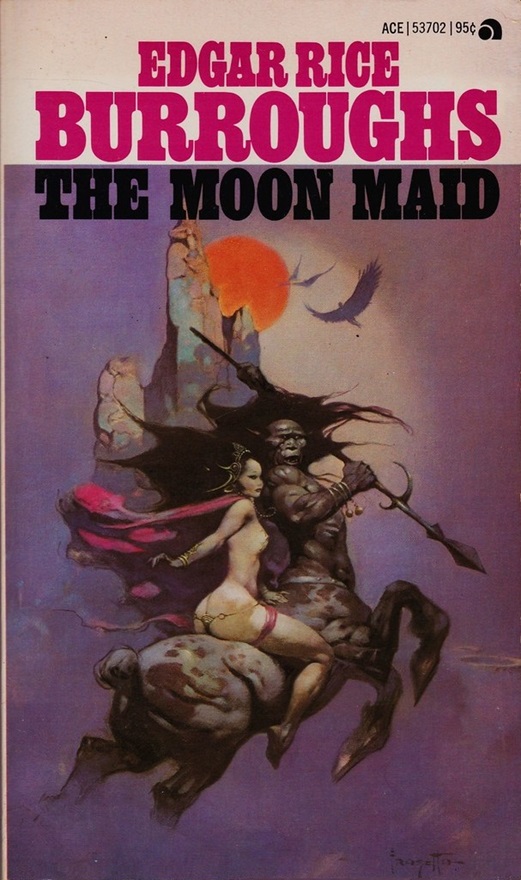 The Moon Maid (Ace Books, January 1974). Cover by Frank Frazetta
The Moon Maid (Ace Books, January 1974). Cover by Frank Frazetta
A series that I would have liked to see more of from ERB was his Moon Maid series. It’s sometimes described as a trilogy, but only the first book is full length. That’s The Moon Maid (copyright 1923). The sequels are novellas called The Moon Men and The Red Hawk (copyright 1925), which I first read combined in a later Ace book called The Moon Men. The novellas are reprinted from the pages of Argosy All-Story Weekly, where the tales were first serialized in 1925.
The Moon Maid has an awesome Frank Frazetta cover that is one of my favorites among his works. I have two copies of The Moon Men, one with a Frazetta cover and the other with a cover by Ed Emsh.
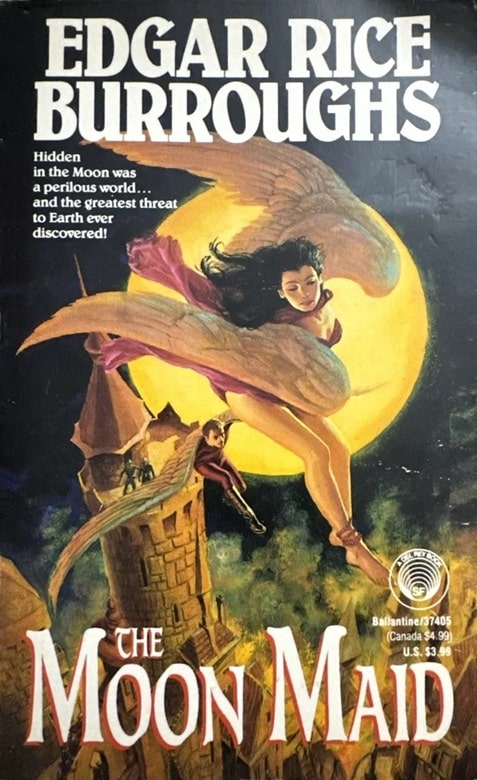
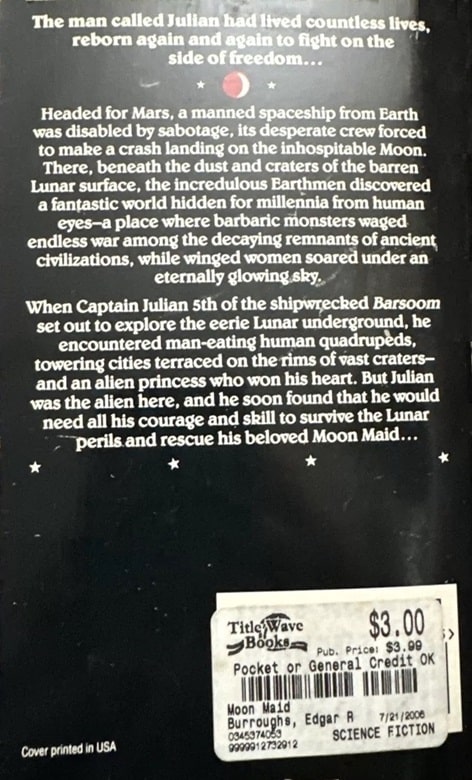
The Moon Maid (Del Rey Books, May 1992). Cover by Laurence Schwinger
The hero in The Moon Maid is Julian the 5th, an Earthman who has lived through many previous incarnations and remembers them. He is leading a rocket ship journey to Mars when the ship has to make a forced landing on the Moon.
They find an oxygen atmosphere inside the moon, and a wild land of strange creatures, including human-type and centaur-type intelligent races. Julian meets a princess of the human-type, Nah-ee-lah, and must rescue her. There’s lots of action and hand to hand combat, although not a lot of sword fighting. I would classify it as S&P.
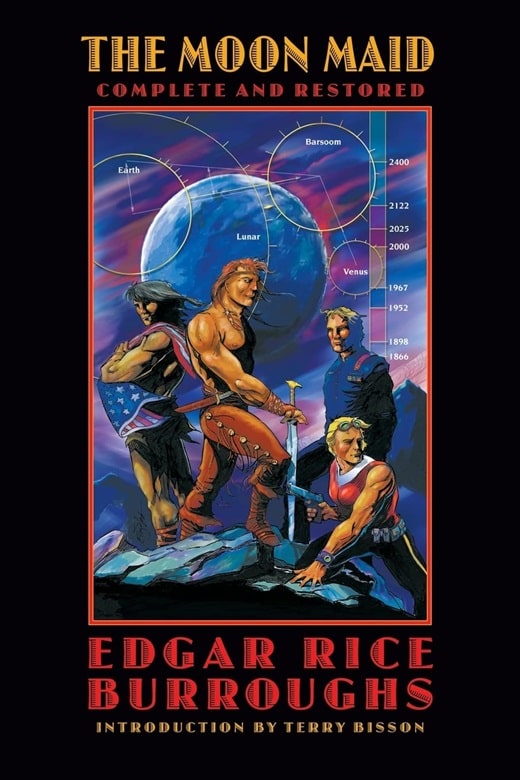
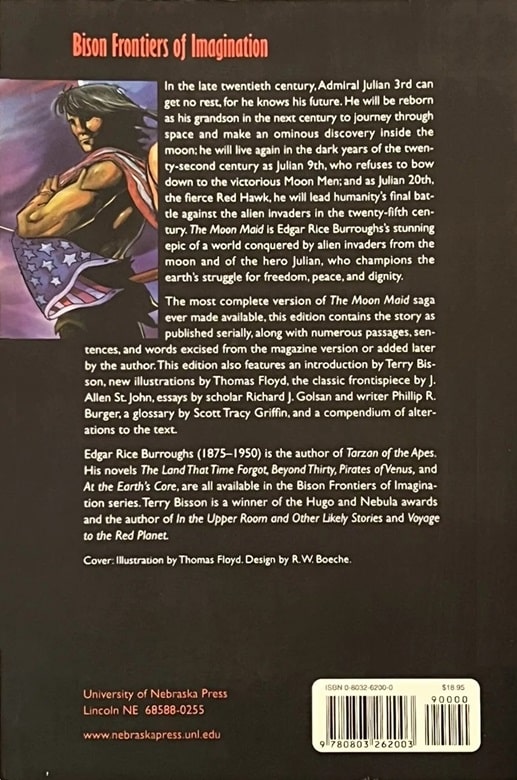
The Moon Maid: Complete and Restored (Bison Books, April 2002). Cover art by Thomas Floyd
The Moon Men and The Red Hawk are not — properly speaking — S&P fiction, because they take place on Earth. In The Moon Men, the Kalkar inhabitants of the Moon have conquered Earth. Julian the 9th, another reincarnation, leads a revolt, but it remains to “Red Hawk,” a descendent of Julian to finally free Earth from the Lunarians’ rule.
The three parts of the Moon trilogy have been published together by Bison books along with all kinds of extras (see above). I don’t have that copy yet but will get it for my collection. The series is one of ERB’s best.
More on Burroughs, including Tarzan and The Land that Time Forgot, in my next post.
Charles Gramlich administers The Swords & Planet League group on Facebook, where this post first appeared. His last article for Black Gate was The Masters of Narrative Drive.
Spotlight on “Victorian Psycho” by Virginia Feito
Victorian Psycho is soon to be a feature film from A24 starring Margaret Qualley and…
The post Spotlight on “Victorian Psycho” by Virginia Feito appeared first on LitStack.
On McPig's Radar - Never the Roses
Did I already read this? Yes!
Am I still totally looking forward to getting this beauty in my eager trotters? YES!
Believe me: you want this book! It's utterly amazing and beautiful in and out!
Go preorder: I totally did.
 Never the Rosesby Jennifer K. Lambert
Never the Rosesby Jennifer K. LambertUNSTOPPABLE WAR. UNSPEAKABLE SINS. IMPOSSIBLE LOVE.
Genevieve Gornichec’s The Witch’s Heart meets Madeline Miller’s Circe in this epic and deeply emotional romantic fantasy debut by Jennifer K. Lambert. The hardcover edition features beautiful stenciled edges.
The Dread Sorceress Oneira has retired. She’s exhausted from fighting the endless wars of kings and queens, and has long accepted that her death is near. Alone at last but for a few uninvited companions―a near-mythical wolf, a goddess’s avatar, and a feline that embodies magic itself―Oneira realizes that she’s bored. On a whim, or perhaps at the behest of fate, she makes an unlikely trip to the most extensive library in existence: the home of her most powerful rival, the sorcerer Stearanos.
By recklessly stealing a book from him, Oneira inadvertently initiates a forbidden correspondence. Taunting notes and clever retorts reveal a connection neither has found―nor could ever find―in any other.
But Oneira soon learns that Stearanos, bound to a vile king, is tasked with waging war on the queen she once served. A relationship with him is far too dangerous to pursue despite their mutual desire―and yet, Oneira can’t seem to stay away.
A bond with Stearanos could alight the long-extinct flame of life within her… or it could destroy her entirely.
Expected publication July 8, 2025
Review: Grave Empire by Richard Swan

Buy Grave Empire OFFICIAL AUTHOR BIO: Richard Swan is a critically acclaimed British genre writer. His debut fantasy novel, The Justice of Kings, was an instant Sunday Times bestseller and has been translated into seven languages. His other work includes the Art of War and Great Silence trilogies, as well as short fiction for Black Library and Grimdark Magazine.
Richard is a qualified lawyer, and before writing full time spent ten years litigating multimillion pound commercial disputes in London. He currently lives in Sydney with his wife and three young sons.
FORMAT/INFO: Grave Empire will release on February 4th, 2025. It will be available in paperback, ebook, and audiobook formats.
OVERVIEW/ANALYSIS: Renata Rainer's job is a joke. As ambassador to the Stygion mermen, she largely has given up hope of ever being useful, given that the mermen want nothing to do with humans. But when two monks arrive claiming to have lost contact with the afterlife, suddenly Renata finds herself in the midst of a critical mission. The Stygion are some of the world's foremost arcana practitioners, and it's up to Renata to verify if recent portents do indeed herald an apocalyptic event known as the Great Silence. But Renata's not the only one interested in the Great Silence - and there are those who want help along the end of the world instead of stopping it.
Grave Empire is a haunting, harrowing journey that envelopes you in its atmosphere, while asking readers for patience in experiencing the actual payoff. This is a story of three individuals scattered across an empire who are realizing that a Very Bad Thing is coming. One is unraveling the secrets of a mysterious plague, another must travel through a warzone to consult with magic practitioners who can shed light on an ancient prophecy, and another is investigating strange reports on the frontier of the empire. Each story is compelling and unsettling, as our characters come to understand just how very wrong things are.
And yet when the dust settled, it felt like all that had been accomplished was learning that yes, a Bad Thing is coming and it is a VERY Bad Thing. The nature of the Great Silence is absolutely a satisfactory threat, and I look forward to seeing how our characters try to handle it, especially as some dominoes began tipping at the end of our story. But this first book is essentially all table setting. Here is the empire, here are the characters, here is the state of the mortal plane, here are some of the weird things that are happening. Will we explain how these weird things are tied together? Not really.
I do want to touch on the relationship between the Empire of the Wolf trilogy and this new The Great Silence trilogy. You do not need to have read the first trilogy to enjoy this new series; the events of Empire of the Wolf are as removed from the characters as the Napoleonic Wars are for us. Those events were definitely a big thing that happened, but they don't inform the characters' day to day lives.
The writing here is also more accessible than the previous trilogy. The first series was told first-person memoir style, while this new one is told across three third-person POVs. I think it also reflects the difference in tone between the two stories. Whereas Empire of the Wolf was a more personal journey of an individual caught up in world-shaking events, Grave Empire feels a little more big picture, a view of how several nations will grapple with a new threat.
CONCLUSION: I want to be clear, overall I really enjoyed Grave Empire, even if the ending left me a bit underwhelmed. I remain hopeful that the second book in this trilogy is going to take everything in the first book and use it for a fantastic sequel. In reading the first trilogy set in this world, I was lukewarm on book one, and then the sequel was one of my top reads the following year. Given how monumentally unsettling the nature of the Great Silence is, I think there's every chance this series will follow in its predecessor's footsteps.
Howard Andrew Jones, a Mentee’s Perspective
 Howard Andrew Jones at GenCon, 2023
Howard Andrew Jones at GenCon, 2023
In 2019, I had an idea: a lot of my friends loved reading sword and sorcery fiction, but they didn’t write it. They would say, “One day.” Many of my undergraduates also expressed interest in writing fantasy, but they often felt discouraged by form rejection letters (genre magazine slush piles are epic). Having studied the history of genre fiction, I knew about the old tradition of “fanzines”— not-for-profit amateur publications that provided a low-stakes outlet for new writers. Just submitting work, collaborating with an editor, and seeing it in print can transform someone’s self-image from being just a reader to being a writer.
So, after some conversations with friends and a bit of encouragement, I started thinking seriously about launching my own zine.
As an academic, I’m deliberate by nature. I like to consult and take my time. Honestly, if I could have formed a committee for this, I probably would have. Instead, I decided to email someone: Howard Andrew Jones.
[Click the images for larger versions.]
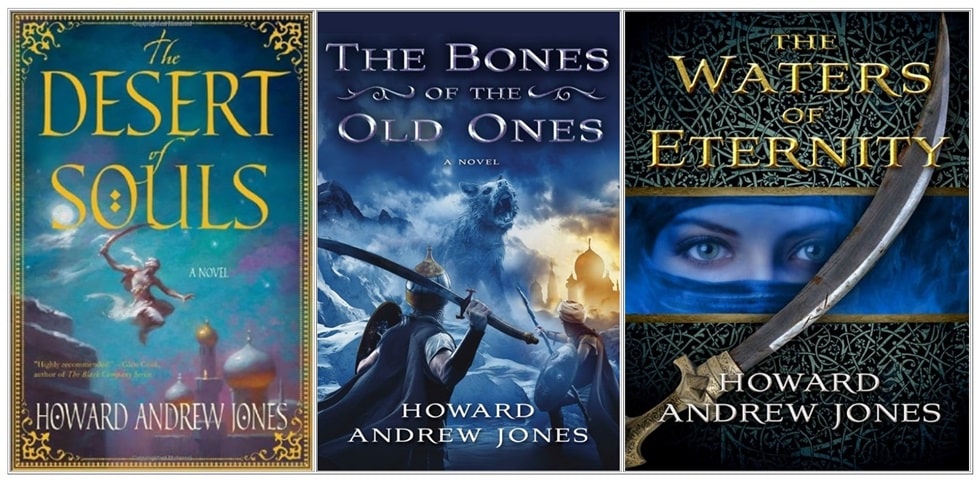 The three Dabir and Asim volumes: The Desert of Souls, The Bones of the Old Ones, and the collection The Waters of Eternity (Thomas Dunne Books, February 2011, December 2012, and November 2011). Covers by Charles Keegan, Steve Stone, uncredited
The three Dabir and Asim volumes: The Desert of Souls, The Bones of the Old Ones, and the collection The Waters of Eternity (Thomas Dunne Books, February 2011, December 2012, and November 2011). Covers by Charles Keegan, Steve Stone, uncredited
At the time, I didn’t know Howard personally, but I knew of him. He was a celebrated name in sword and sorcery. Howard had published an e-zine (Flashing Swords) in the genre, written essays and edited for Black Gate, and authored an incredible series of novels set in a sword-and-sorcery-inspired Arabia featuring Dabir and Asim (The Desert of Souls and The Bones of the Old Ones). He was also working on a new trilogy, The Ring-Sworn Trilogy, and I had already read the first book.
On top of all that, Howard had written several fun Pathfinder RPG novels, and he was editing Tales from the Magician’s Skull, the magazine for contemporary sword and sorcery fiction, published by Goodman Games. I loved that magazine. If anyone could give me advice on starting a zine, it was Howard.
I didn’t expect much when I emailed him. I wrote a long message, gushed a bit as a fanboy, and sent it off. Honestly, I wasn’t really expecting a response.
The next day, I was in my campus office grading papers when my office phone rang. My office phone never rings. In my ten years at CNU, maybe one student has ever called me. It’s practically an artifact – a dusty relic of a bygone era. My first instinct, as a millennial, was to let it go to voicemail. That’s what you do: let them leave a message and call back after some breathing exercises.
But for some reason, I picked it up.
“Hello?”
“Jason?”
“Yeah, this is Jason.”
The voice on the other end was calm, relaxed, with a kind of deliberate enunciation.
“Heeey, Jason! This is Howard.”
“Howard?” I said, not quite connecting the dots.
“Howard Andrew Jones. You emailed me about a magazine idea.”
I still get a little emotional thinking about that first call. Maybe I’m projecting, but I was immediately surprised, disarmed, and touched. Howard had gone out of his way to call me – call me! My office number isn’t even in my email signature, so he must have looked me up online to find my CNU contact info. I hadn’t even expected a reply, and here was this great author, taking the time to phone me.
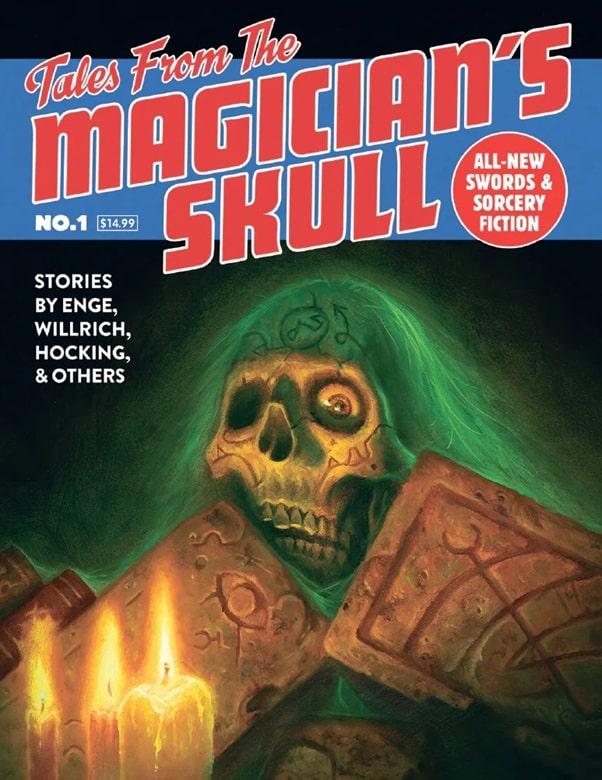
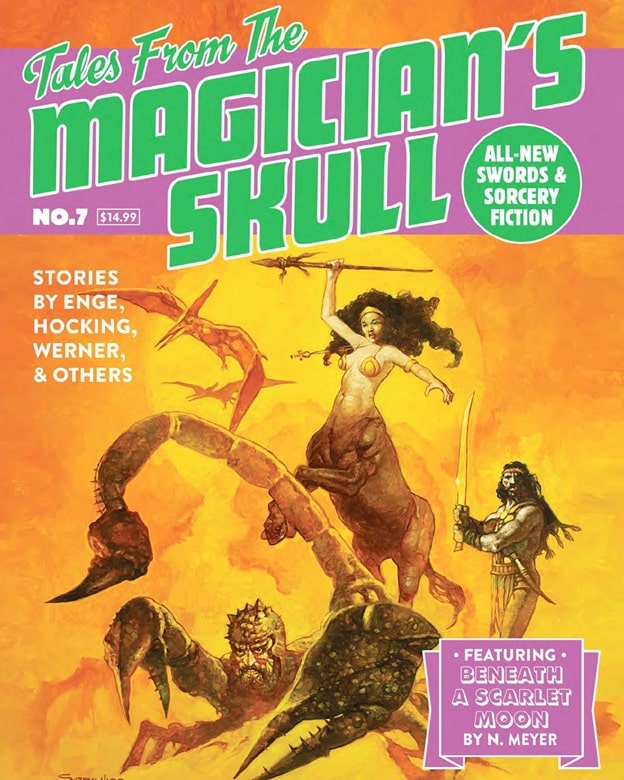
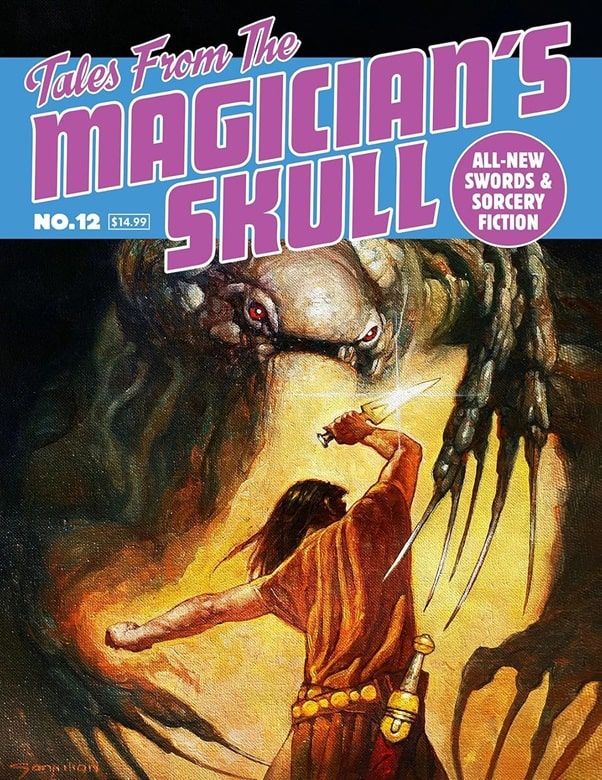
Tales of the Magician’s Skull, edited by Howard Andrew Jones. Issues 1, 7, and 12
(Goodman Games, 2017, 2022, and 2024). Cover art by Jim Pavelec and Sanjulian
I was a bit starstruck when we first talked. I’m already an awkward person, but the awkwardness was dialed up as I tried to gather my bearings. Howard, however, was so kind, calm, and genuinely enthusiastic about fiction, writing, and fantasy literature that I found myself speaking to him like an old friend. I’m pretty sure we talked for over an hour during that first conversation. I remember he was multitasking while on the phone – taking out the trash or doing yard work.
In the years that followed, whenever I spoke to Howard, he always seemed to be en route somewhere – driving to town, running errands, sometimes saying, “Hold on, I’ve got to grab this thing.” He felt real and grounded in a way that made people feel at ease. He gave off this sense of being completely unaware of how cool he was or how others saw him – or, if he did know, he just didn’t put much stock in it.
Over the next five years, Howard and I stayed in almost constant contact. We texted regularly. Often, he’d reply to a message with something like, “You free? Driving to town.” When I started my magazine and created an associated Discord server, he joined and became as active there as anyone, if not more so.
His comments were always supportive, kind, and encouraging. He shared favorite authors, thoughts on prose style, and a steady drip of wisdom for aspiring writers. Whenever anyone mentioned his work, he would chime in, “Thanks for reading it,” “Glad it worked for you,” “Really appreciate the kind words.”
Outside of Discord, we talked on the phone often. One thing I noticed was that Howard frequently mentioned his friends – not in a name-dropping way, like he wanted you to know he knew big authors, but in a way that made you feel like you were part of this collaborative effort, this network of fellow creatives. To him, it seemed, writing wasn’t a solitary pursuit but a shared craft. It was like Howard was always attending a seminar on fiction, and his calls were a way of touching base to see how your progress was going.
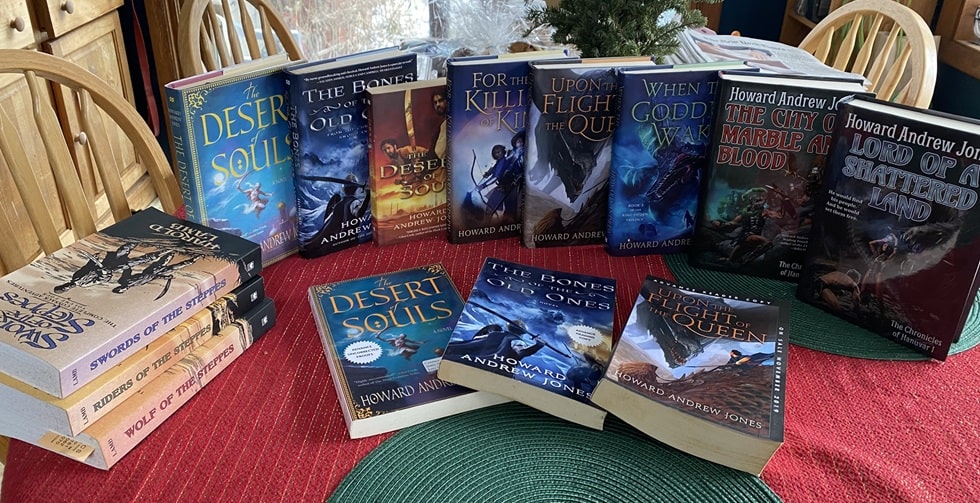 The books of Howard Andrew Jones
The books of Howard Andrew Jones
For instance, he’d say something like, “Hocking and I were talking about dialogue – how it needs to reveal character but economically, like in hardboiled detective fiction” (I’m paraphrasing). From the way he spoke, I got the sense that Howard had a lot of writer friends, and they talked about the craft of writing the way master carpenters might talk about solving technical problems with wood.
Fandom can get a little gossipy, but Howard never said a negative thing about anyone. He was almost stubbornly kind and assumed the best intentions from people. Being in touch with him felt like being welcomed into a very supportive club. Over time – without me even realizing it – Howard became something of a mentor or even a sensei in sword and sorcery writing.
At first, we just talked about sword and sorcery (a genre he was deeply opinionated about – he really didn’t like Tros of Samothrace (“Bounced right off it)), but our discussions evolved into broader topics: writing, work, heroism, and how storytelling affects people’s lives. I can honestly say I learned a lot about writing from him, at least an MFA’s worth, or more.
I met Howard in person three times over the six years I knew him. I saw him at GenCon, the big gaming convention that also includes a section for genre writers. We sat on several panels together discussing sword and sorcery fiction. He attended Howard Days, a celebration of Robert E. Howard, the pulp author who created sword and sorcery (yes, it gets confusing). And then I saw him again at GenCon this past August of 2024.
In August, aside from a persistent leg injury, Howard seemed… OK. I need to be honest and say he struck me as a little blue at GenCon, and he suspected it was due to the injury or the associated medication treating it. He had every reason to be happy. He had just published the first two books of his Hanuvar series. If I remember correctly, book three, Shadow of the Smoking Mountain, had just come out or was coming out. At the convention, he gave me an ARC and signed it with the words, “Find a way or make one.” I took this as a nod to the writer’s life, a reminder to persevere and create despite the challenges.
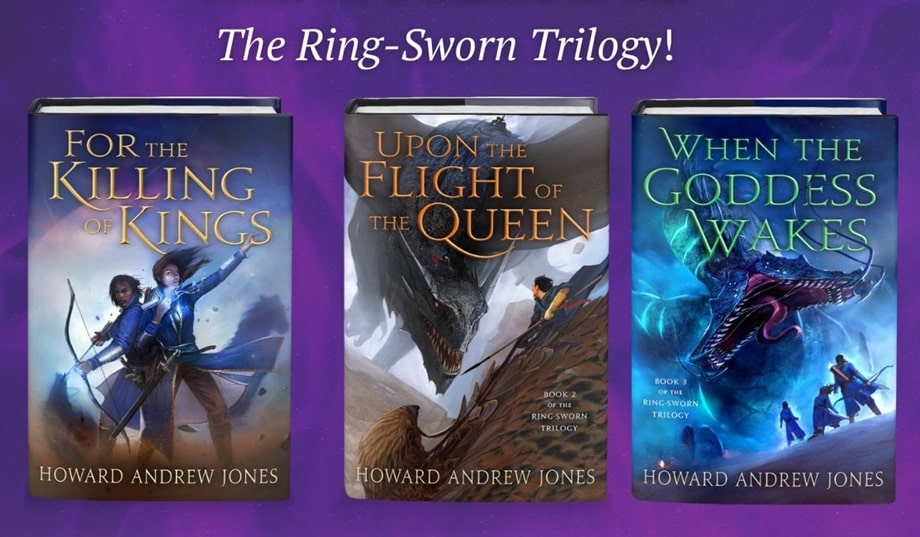 The Ring-Sworn Trilogy by Howard Andrew Jones (St. Martin’s Press, 2018-2021). Covers by Lauren Saint-Onge
The Ring-Sworn Trilogy by Howard Andrew Jones (St. Martin’s Press, 2018-2021). Covers by Lauren Saint-Onge
On the last day of GenCon, literally just before leaving, Howard, my wife Nicole, and I had lunch together. It was the first time Howard had met Nicole. She joked and referred to Howard as “my friend in my pocket” because I was always texting with him. I laughed and told her, “You don’t understand – this guy is so cool. He’s the nicest guy you’ll ever meet.”
That might sound like grief-motivated hyperbole now, but, in hindsight, it wasn’t. That’s exactly how I spoke about Howard before I knew anything was wrong.
Nicole and I had lunch with him, and of course, they hit it off. I can’t recall the details but Howard was fascinated with Nicole’s life growing up on a farm (did Howard come from a rural background?). After the meal, Howard said he was glad to have met her.
We left the restaurant. There were hundreds of people in the corridors at GenCon, a veritable sea of humanity, and Nicole and I were ready to leave, luggage in hand. So, we said our goodbyes. I had no idea it was the final goodbye. Howard gave me a hug and said, “Well, safe travels to you and your beautiful wife. And, keep writing.” Then he disappeared into the crowd.
A few weeks later, I learned he had gone to the hospital with acute symptoms.
I’m still in the anger phase of all this. Howard was such a good guy. It felt like, as a writer, he was hitting his peak. In my view, he had so much more to give the world – not just through his novels but through who he was as a person. I know my story is just one of many similar ones. That’s the kind of person Howard was: everyone who met him seemed to come away with a story about his kindness. This tragedy couldn’t have happened to a more undeserving person.
Howard, you’ll be missed, man. Thanks for being you.
Jason Ray Carney is a Lecturer in Popular Literature at Christopher Newport University. He is the author of the academic book, Weird Tales of Modernity (McFarland), and the fantasy anthology, Rakefire and Other Stories (Pulp Hero Press). He edited Savage Scrolls: Thrilling Tales of Sword and Sorcery for Pulp Hero Press and is an editor at The Dark Man: Journal of Robert E. Howard and Pulp Studies and Whetstone: Amateur Magazine of Sword and Sorcery. His last article for Black Gate was a review of Lord of a Shattered Land.
7 Author Shoutouts | Authors We Love To Recommend
Here are 7 Author Shoutouts for this week. Find your favorite author or discover an…
The post 7 Author Shoutouts | Authors We Love To Recommend appeared first on LitStack.
Graphic novel: Final Cut by Charles Burns

Book links: Amazon, Goodreads
ABOUT THE AUTHOR: Charles Burns grew up in Seattle in the 1970s. His work rose to prominence in Art Spiegelman's Raw magazine in the mid-1980s and took off from there, for an extraordinary range of comics and projects, from Iggy Pop album covers to the latest ad campaign for Altoids. In 1992 he designed the sets for Mark Morris's delightful restaging of The Nutcracker. He's illustrated covers for Time, the New Yorker and the New York Times Sunday Magazine. He is the official cover artist for The Believer magazine. Black Hole received Eisner, Harvey and Ignatz awards in 2005. Burns lives in Philadelphia with his wife and two daughters.
Publisher: Pantheon (September 24, 2024) Length: 224 pages Formats: Hardcover, ebook
It’s been a long wait -ten years, to be exact-but Charles Burns is back with Final Cut, a weird, sad, and beautifully drawn trip into the mind of an awkward teenage filmmaker named Brian. Set in the early ‘70s, the story follows Brian as he and his friends make a low-budget horror movie on a camping trip.

Everything revolves around Laurie, Brian’s red-haired crush, who becomes his muse, his obsession, and, ultimately, the centerpiece of a story he might be rewriting in his head.

As a result, Final Cut can initially feel like a simple coming-of-age story about a group of friends making a low-budget film in the woods. But true to Burns’ style, there’s so much more beneath the surface. As Brian edits his movie, it becomes clear he’s also “editing” his memories of that summer, creating a version of events where he has more control—and maybe even the happy ending he never got.
This comic has great vibes. You’ve got razor-sharp art that’s stunning, a creeping sense of unease, and characters you’re not quite sure how to feel about. Since I love unreliable narration, I loved the eerie, dreamlike atmosphere. Brian’s a loner who’s into art and movies—cool enough—but he’s also kinda creepy. He films Laurie without her knowing, sketches naked pictures of her, and lurks outside her tent at night. His version of events might not be a full story.

That’s the hook here: is this all really how it went down, or is Brian “editing” the summer in his head to make it more palatable? He’s a filmmaker, after all, and Final Cut plays with that idea of memory as a movie you can tweak. The whole thing has this dreamy, slightly unsettling vibe, like you’re stuck in Brian’s head with him.
The art? Absolutely stunning and otherworldly. Burns’ haunting artwork is unparalleled, as he effortlessly shifts between grounded realism and surreal horror. The color palette—rich blues, stark whites, and deep reds—heightens the unsettling atmosphere, while the splash pages and film-like sequences are nothing short of stunning.

If there’s a downside, it’s that the pacing can be uneven and its core is quite simple, really. Unrequited teenage love, even with all the surreal touches, might not sound like much on paper. And yeah, some parts drag, like the repetitive “making the movie” scenes. But by the end, Final Cutk hits you with this quiet, bittersweet sadness.
Final Cut is a beautifully weird, unsettling, and surprisingly tender look at love, art, and the stories we tell ourselves. If you’re a fan of Charles Burns or just love weird, thoughtful comics, this one’s worth the ride.
Book Review: At the Bottom of the Garden by Camilla Bruce
I received a review copy from the publisher. This does not affect the contents of my review and all opinions are my own.
 At the Bottom of the Garden by Camilla Bruce
At the Bottom of the Garden by Camilla Bruce
Mogsy’s Rating: 3.5 of 5 stars
Genre: Horror
Series: Stand Alone
Publisher: Del Rey (January 28, 2024)
Length: 384 pages
Author Information: Website | Twitter
I’ve been a fan of Camilla Bruce ever since I read You Let Me In, which won over with its dark, complex characters and unsettling themes. Her stories so often blur the lines between the real and the supernatural, and her newest novel At the Bottom of the Garden seemed like it would too—a blend of eeriness and whimsy and atmosphere. However, certain aspects also fell short of my admittedly high expectations.
The book introduces Clara Woods, a conniving woman who seizes on an opportunity to reshape her future when a tragic climbing accident claims the lives of her brother and his wife, leaving her as the sole guardian of their two orphaned daughters. Ambitious and cunning, Clara dreams of becoming the head of her own diamond business but lacks the funds to make it happen. With her late brother’s estate now in the hands of his children, Clara begins to plot her way into gaining access to their inheritance.
Still grieving the loss of their parents, 14-year-old Lily and 9-year-old Violet suddenly find themselves transported from their lavish townhome into a decaying manor in the countryside, living with their aunt whom they hardly know. Clara seems kind enough, and says all the right things, but the girls know better. Each secretly harbors a unique gift—Lily can “see” the emotions of others as different colors, while Violet has an inexplicable connection to the realm of the unliving. As their aunt’s manipulative behavior grows worse, the sisters begin to suspect her motives, especially when the house begins to feel increasingly suffocating and oppressive. One day, Violet’s mysterious ability unleashes a long-buried secret, and before long, Clara is surrounded by the ghosts of her past. A tense battle of wills ensues as Clara isn’t about to back down, while the girls grow increasingly defiant and emboldened by their powers.
The story primarily unfolds through chapters alternating between the perspectives of the three characters. Clara is a real piece of work—a greedy, social-climbing widow who is secretly delighted when her half-brother dies and only sees taking care of his daughters as a means to an end. Lily is more mature than her age would suggest, quietly observant and deeply protective of her younger sister. Violet is pure innocence, wanting only to please. Each POV adds a layer to this precarious dynamic, as the girls’ resistance causes Clara to push to take her scheming to the next level.
The writing style is interesting in this one, though it also strongly reminded me of In the Garden of Spite and All the Blood We Share, both books in which Camilla Bruce takes readers into the twisted minds of morally complex, often villainous characters. The main difference is, At the Bottom of the Garden takes on a more whimsical, cartoonish tone— turning Clara into something like a wicked witch from a children’s fairy tale. However, the charm doesn’t last. Eventually, the lack of depth shows through. You start wondering why the girls aren’t taking the obvious, logical steps to get out of their situation. Clara’s ideas become more and more far-fetched. Over time, these unrealistic elements just keep piling up, making the story feel increasingly oversimplified and shallow.
And though I ultimately liked that this was a ghost story, I couldn’t help but feel its potential was wasted. Things started out strong, with a sense of foreboding that was practically palpable. Yet as events unfolded, the plot began to lose its focus, meandering into subplots that distracted from the central conflict involving the haunting, the girls’ abilities, and Clara’s role as a murderess. All that started to feel like a backdrop rather than the key driving force, and by the time we got to the ending, the resolution was rushed and somewhat unsatisfying. The ending simply lacked the emotional impact I was hoping for, a letdown after the tensions built throughout the story.
Overall, in my opinion, At the Bottom of the Garden was not Camilla Bruce’s best, but the strange gothic dark fairy tale vibe does make it more unique and stand out among her other books. And despite my criticisms, I did enjoy it for its atmosphere and slow-burn supernatural plot. Recommended if you are a fan of the author, or for readers who can appreciate a lighter take on horror.
![]()
![]()
YA Fantasy Audiobook Review: Daughter of the Moon Goddess by Sue Lynn Tan
 Daughter of The Moon Goddess ( The Celestial Kingdom #1)bought on Audible
Daughter of The Moon Goddess ( The Celestial Kingdom #1)bought on AudibleSynopsis from Goodreads
Growing up on the moon, Xingyin is accustomed to solitude, unaware that she is being hidden from the feared Celestial Emperor who exiled her mother for stealing his elixir of immortality. But when Xingyin’s magic flares and her existence is discovered, she is forced to flee her home, leaving her mother behind.
Alone, powerless, and afraid, she makes her way to the Celestial Kingdom, a land of wonder and secrets. Disguising her identity, she seizes an opportunity to learn alongside the emperor's son, mastering archery and magic, even as passion flames between her and the prince.
To save her mother, Xingyin embarks on a perilous quest, confronting legendary creatures and vicious enemies across the earth and skies. But when treachery looms and forbidden magic threatens the kingdom, she must challenge the ruthless Celestial Emperor for her dream—striking a dangerous bargain in which she is torn between losing all she loves or plunging the realm into chaos.
A captivating debut fantasy inspired by the legend of Chang'e, the Chinese moon goddess, in which a young woman’s quest to free her mother pits her against the most powerful immortal in the realm. Daughter of the Moon Goddess begins an enchanting, romantic duology which weaves ancient Chinese mythology into a sweeping adventure of immortals and magic—where love vies with honor, dreams are fraught with betrayal, and hope emerges triumphant.
8.5/10* * *
This turned out surprisingly good! I started the book rolling my eyes hard at sugary romance between the prince and his companion. Classic xinxia setup!
However, they both proved me wrong with their level of maturity. Basically, both ML and FL got over themselves pretty quickly and went on with their lives like adults.
The secondary romance developed so fast I must have blinked and missed its onset, but it definitely added tension and depth, especially when two men had to work together. * snort* Oh, the antagonism!
I'd say the action sequences were the most interesting and best written and I wished the author elaborated more about Xingyin's missions in the army as I was entertained the most with their descriptions.
Overall, a solid four star read. Will be checking out the next book in the series.
Chinese Paranormal Fantasy Short Drama Review: Butterflied Lover (2023)
 Butterflied Lover (2023)
Butterflied Lover (2023)22 episodes, watched on Viki
Synopsis from MyDramaList
Inspired by the romance of Liang Shang Bo and Zhu Ying Tai, the story revolves around two lovers who will overcome all obstacles to remain together.
Ling Chang Feng is an honourable general and has been in a passionate marriage with his wife for the past 3 years.
However, a strange disturbance hits their city on their third anniversary, and "madmen" run wild in the town, attacking innocent citizens violently.
Ling Chang Feng leaves his wife behind to protect the people, but when he returns, finds that his wife has been infected by this phenomenon.
He refuses to reveal this, as he knows that anyone who turns mad will be killed. He keeps her by his side in secret while trying to solve the cause of this frightful phenomenon.
8.5/10* * *
It's an exceptionally well made bite size drama, folks (each episode is only 15 mins). You can see they had a very tight budget but they used it so, so well. The plot is fresh, the scenes are carefully crafted and the cinematography is masterful. I watched other two short dramas from the same director, and they were both fantastic (The Killer is Also Romantic, A Familiar Stranger). So, please, don't hesitate to invest your time in this drama.
It starts with Chang Feng and Qian Yue happily married in a fictional Chinese city state. She keeps having a recurring dream about reliving the same day until it actually happens and she gets embroiled in a tragic attack by this world's equivalent of vampires.
After that we are taken into the past, where it shows how Chang Feng met his future wife and how their relationship developed. As she says, her memory starts from him. So she herself is full of secrets and has no memory of her past, a woman who literally had to learn anew everything.
Their relationship develops from him looking after her as this almost childlike creature until she slowly matures and finds her strengths turning into a woman who loves fiercely. Chang Feng himself is a reticent workaholic who keeps away from politics or anything that doesn't require him just to guard his city. Qian Yue slowly changes that, and it's very sweet to see them together.
For once, the second couple's love story here is also touching and very cute. Considering that last time I saw the second male lead, he was playing the main villain in Blood of Youth, and he started as an antihero here as well, I was ready to dislike him, but he went from one dimensional, cold man to a shy, confused and hilariously out of sorts young lover pretty fast, and this melted my resolve to not like him.
Phew, I don't know how I managed not to give you any spoilers! Here is a fan vid to show you the beauty of this drama, folks. I hope after this you will give it a chance. It was great. Humorous, humane and lovely. Two thumbs up from yours truly.
Romantic YA Fantasy Chinese Drama Review: I've Fallen For You (2020)
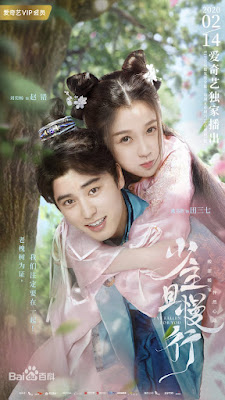 I've Fallen For You (2020)
I've Fallen For You (2020)24 episodes, watched on Viki
Synopsis from MyDramaList
A story that follows the quirky female investigator Tian San Qi as she searches for her long lost 'brother' and cracks many cases along the way.
Growing up, Tian San Qi had a strange liking for performing autopsies. She had an older 'brother' who would always be by her side and they spent many good years together. One day, he mysteriously disappears. San Qi as a child promises to find her true love and vows never to marry unless it's him.
In her search, she comes across many potential candidates and forms new friendships. The gang accidentally becomes involved in several cases in the area one of which seems closely related to the disappearance of her 'brother' all those years ago. A shocking conspiracy that is 10 years in the making comes to light.
~~ Adapted from the web novel "Jin Xin Ji" (锦心记) by Han Xue Fei (韩雪霏).
8/10
* * *
Straight away I just wanted to clarify the synopsis: "brother" here is Chinese gege/older brother which can mean both your actual older brother or an older than you male you are familiar with. Same as you would be able to call an older girl -jiejie (older sister) or an older woman who is not your mom - ayi (aunty).
This is a very cute and engaging drama despite its silly light heartedness, and the characters are very young. I can't quite pinpoint what exactly snared me in I've Fallen For You.
It had Esther Yu whom I love since her performance in Love Between Fairy and Devil, and she is a very, very interesting actress. She is able to pull off cutest silliest pouts with great charm in her tinny tiny voice but at the same time give an impression that this is just a mask she adopted and make her moments of brilliant intelligence and sorrowful wise stares absolutely believable.
Liu Yi Chang who plays the male character, Zhao Cuo, is adorable as well. Grumpy, rough around the edges, abrasive, throwing money around and standoffish, he is actually covering his kind and trusting nature with this behaviour like a hedgehog with its needles to protect himself from getting hurt. You really feel his tentative pure nature straight away, and because he also doesn't bother to mince words, most people find him too rude and turn away until San Qi (FL) convinced that he is her long lost childhood sweetheart bulldozes him over.
That poor boy has no chance to withstand against her, and they go through all the phases of good relationship: partnership where they gain mutual respect for each other's abilities (she is great at solving cases, he is a brilliant martial artist), friendship (when they develop an easy camaraderie to each other), and at last, love.
The way Zhao Cuo shows his love for San Qi is especially adorable. There is a scene where she decides to leave him for another guy who she thinks is her real childhood sweetheart, and Cuo after battling his inner demons for awhile accepts it to make her happy and on the day of her departure spends all morning buying her favourite foods for the road and running after the carriage. After she takes the food and drives off he just dissolves into an ugly cry right in the middle of the road. Not a pretty staged "artful tear sliding down my cheek" sort of cry, but proper ugly, suffocating, can't breathe from heartbreak cry. That really touched me.
There were quite a few moments like this, and I surprised myself really enjoying this drama. The soundtrack was a surprise too, it was more a kdrama type, rather than typical Chinese fantasy drama OST.
Overall, despite the strong comedy vibe, this was not only an entertaining but touching and adorable short drama. Recommended!
YA Fantasy Duology Audiobook Review: The Book of Tea by Judy I. Lin
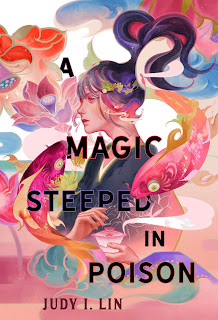 A Magic Steeped in Poison by Judy I. Lin (The Book of Tea #1)
A Magic Steeped in Poison by Judy I. Lin (The Book of Tea #1)bought on Audible
Synopsis from Goodreads
For Ning, the only thing worse than losing her mother is knowing that it's her own fault. She was the one who unknowingly brewed the poison tea that killed her—the poison tea that now threatens to also take her sister, Shu.
When Ning hears of a competition to find the kingdom's greatest shennong-shi—masters of the ancient and magical art of tea-making—she travels to the imperial city to compete. The winner will receive a favor from the princess, which may be Ning's only chance to save her sister's life.
But between the backstabbing competitors, bloody court politics, and a mysterious (and handsome) boy with a shocking secret, Ning might actually be the one in more danger.
 A Venom Dark and Sweet by Judy I. Lin (The Book of Tea #2)bought on Audible
A Venom Dark and Sweet by Judy I. Lin (The Book of Tea #2)bought on AudibleSynopsis from GoodreadsA great evil has come to the kingdom of Dàxi. The Banished Prince has returned to seize power, his rise to the dragon throne aided by the mass poisonings that have kept the people bound in fear and distrust.
Ning, a young but powerful shénnóng-shi—a wielder of magic using the ancient and delicate art of tea-making—has escorted Princess Zhen into exile. Joining them is the princess' loyal bodyguard, Ruyi, and Ning's newly healed sister, Shu. Together the four young women travel throughout the kingdom in search of allies to help oust the invaders and take back Zhen's rightful throne.
But the golden serpent still haunts Ning's nightmares with visions of war and bloodshed. An evil far more ancient than the petty conflicts of men has awoken, and all the magic in the land may not be enough to stop it from consuming the world...
7.5/10* * *
If I was breaking the rating for the two books, the first one would have 8/10 (4 stars) rating as it was more coherent and engaging than book two (3.5 stars). While listening to the book two I caught myself drifting and missing chunks of what was happening which for me is not a good sign, hence lower rating for the duology.
The best part of this duology is its unique magic system where people with certain abilities could brew tea from any plants, herbs, berries, flowers, etc. or their combinations for different healing reactions in patients or for imbuing people with particular powers and enhancing certain reactions. This whole concept was fascinating and very well done.
Book one with its competition and much tea making was perfect in its simplicity. Ning had a goal to win and get the best medical help possible for her younger sister. She also acquired friends, enemies and a love interest along the way who rounded up the story nicely.
Getting into book two, the plot stretched itself pretty thin. Ning got bogged down in endless quests. Get to point A, grab the object X, continue to point B. And apart from the willow episode and the hike through the bamboo forest, there was nothing juicy here. Kang, the love interest, lost all colour here and quite a lot of backbone. The amount of people who got tortured and killed around him, and he, the prince of the empire, was powerless to do anything to help. I didn't like it at all. I felt like he had no spark or spine and mostly reacted to events, rather than be a force to instigate them. His father had no personality and the villain was outright cartoonish from start to finish.
*Sigh*
Overall, it's an okay listen with a refreshing magic concept. Recommended with reservations.
Chinese Historical Fantasy Drama Review: Under The Power (2019)
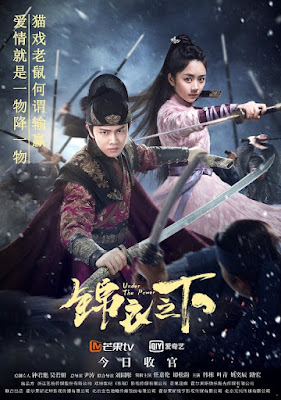 Under The Power (2019-2020)
Under The Power (2019-2020)55 episodes, watched on Viki (you can find in on YouTube)
Synopsis from MyDramaList
Lu Yi is a cold, ruthless and authoritative high-ranking officer of the Ming Dynasty's Jinyiwei (also known as the Brocaded Guards for their elaborately embroidered uniforms). The Jinyiwei are part of the Emperor's elite bodyguards that also serve as the secret police, and Lu Yi is one of the best at his job.
He meets Yuan Jin Xia, a smart, feisty and tom-boyish female officer from the Police's 6th Division, and they clash over a case that the both of them were involved in. Their paths continue to cross unpleasantly over a series of minor cases until Lu Yi was commissioned by the Emperor to secretly investigate the disappearance of funds that have been set aside for river repairs in Yangzhou. Part of the small team accompanying him includes Yuan Jin Xia, and as the two of them work together to solve the case, they find themselves uncovering a conspiracy involving high court officials while their feelings for each other slowly change from dislike to respectful friendship to love.
~~ Adapted from the web novel "Under the Power" (锦衣之下) by Lan Se Shi (蓝色狮).
7.5/10* * *
The rating says it all. Allen Ren (Ren Jia Lun) and Seven Tan (Tan Song Yun) is the main attraction here, and mostly it's Seven Tan. She has such a magnetic personality and can pull off the silliest, most idiotic antics for comedy value without being too much. In fact, the more I was watching this, the more I felt that recent Warm on a Cold Night drama which I abandoned half way through tried to poorly imitate Jinxia's behaviour (female lead) and ended up just looking stupid. Besides there were more similarities there.
As the male lead, Lu Yi, says half way through falling in love with Jinxia: "She is mesmerising..", so you can't help but falling into her orbit.
Jinxia is a classic poor, tenacious, cunning little thing working in the capital's police department, cleverly solving cases and keeping herself in all the little pies she can think of to survive and make money. Her mother sells tofu on the streets and keeps trying to marry her off.
Lu Yi is a complete opposite to Jinxia in almost all the aspects. He is rich, he leads the equivalent of special police of the country which concentrates on internal investigations and keeps rich and powerful in fear. That force answers only to the emperor. Lu Yi is aloof, ruthless and doesn't have many joys or passions in life.
When he clashes with Jinxia over a case, he outdoes her with ease in direct confrontations, but while he is rich in resources and manpower, she is a great tracker and knows common people, so she catches up with him or even thwarts him in other spects. Their antagonism is fun to watch, especially when you see her ruffling his feathers more and more.
"Why not higher rating then?" you'd ask. First of all, a secondary love story is extremely boring and takes too much screen time. I had to skip past their scenes, seriously.
Secondly, the ending episode is very stupid. Lu Yi who supposingly can plot an intricate chess game, goes and sacrifices himself for a very idiotic reason when all he needed to do is wait a few years and make a move without any danger, and everyone would have been perfectly happy with that plan as there was no urgency to act. Instead, the heroine had to save his sorry a*se again! There was no rhyme or reason in that last act.
Last problem, is that the production is low cost and it's very visible.
So, all these things detracted from my enjoyment but didn't stop me from loving the rest. Overall, a lovely, enjoyable watch! Recommended with some reservations.
Urban Fantasy Audiobook Review: Red Winter Trilogy by Annette Marie
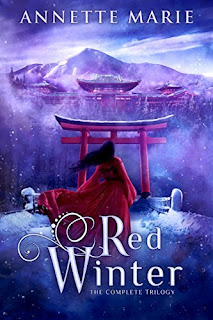 Red Winter/ Dark Tempest/ Immortal Fire by Annette Marie
Red Winter/ Dark Tempest/ Immortal Fire by Annette Mariebought on Audible
Synopsis from Goodreads
Red Winter (Book 1):
Emi has spent her entire life hiding from the creatures that hunt her. The savage earth spirits are determined to kill her before she can become the living host of a goddess, so she stays hidden—until the day she saves the life of a kitsune.
Shiro isn't the harmless fox spirit she thought he was. He's mysterious, cunning, unpredictable … and now hers to command. He's sworn to pay his debt to her, but he doesn't know who she is. If he finds out, he'll kill her.
But she can't send him away—not yet. Her future isn't what she thought. The lies surrounding her fate have begun to unravel, and she needs answers before time runs out—answers that lie in the spirit realm. Shiro can take her there … if she dares to trust him.
And only then will she find out how deep the gods' treachery runs.
--Dark Tempest (Book 2):
Emi has dedicated her life to becoming the perfect vessel for the goddess Amaterasu, but the insidious betrayal of another deity has changed everything. Now Amaterasu has charged Emi with an urgent mission: to find and free the earthly gods before mankind is brought to its knees beneath divine tyranny.
At her side is Shiro, the mysterious fox spirit. When she first saved his life, she could never have imagined that behind his cunning and confidence, he was lost—his power bound by a devastating curse and his memories obscured. His veiled history is somehow tied to the missing gods, but he can't remember how or why.
As their search leads them into the murky depths of the spirit realm, the shadows of Shiro's past begin to emerge. With each brief awakening of his true self, she loses a little more of him. The fate of the heavens and earth rest in her mortal hands, and she must find the missing gods before time runs out for her world—and for Shiro.
--Immortal Fire (Book 3):
Once, Emi believed the heavenly gods were righteous and wise, while the earthly yokai spirits were bloodthirsty and evil. But with a traitorous deity poised to destroy her world, and the yokai standing as humanity's only defense, the lies of her upbringing have toppled to reveal a far more terrifying reality.Despite the looming threat, Emi can't escape her greatest distraction: Shiro, the fox yokai who has so deftly claimed her heart for his own.
8.5/10* * *
What an underrated gem, folks! Such a solid, engaging, original urban fantasy. For me it was bordering on 9/10 (4.5 stars) rating, it was that good!
I confess the generic cover of the first book (all three have the unfortunate covers like the first one) made me hesitate for a long time before picking up Red Winter. I associate those covers with generic books too without much substance. I know, I know, I am a book cover snob, but esthetics play a huge role in me deciding to read something or not.
The whole trilogy was so smooth on audio, with an excellent narrator, so I literally binged on it, catching the other two reads through Audible sale.
It starts a little bit slow, but picks up pace extremely fast. I can tell you that once sped up the plot will not slow down until the end.
I loved how deeply infused by Japanese culture and mythology the books were. So much so, that I could vividly visualise the landscape, clothes and atmosphere surrounding Emi's life at the shrine.
I appreciated very much that Emi and Shiro, and surrounding them secondary characters were not one-dimensional. They learned and evolved with the experiences. Even the main villain did not decide to destroy human will in the world willy nilly, there was solid reasoning behind their actions and in a way it was a misguided attempt to save our planet.
Emi is a wonderful character, a strong young woman who learns fast and constantly stretches the capabilities her connection to the goddess of the wind brings her. Shiro flirts with her from time to time but it feels more as an intimidation tactics that anything else. What bonds them the most is the life or death situations and deep friendship and mutual respect they develop for each other throughout their journey.
I want to emphasise how much respect there is here between the main characters. They actually respect each other's choices and sense of duty which guides them. It's beautiful. And Shiro, thankfully, behaves according to his age and experiences and not like a horny teenager (yes, Sarah J. Maas, this is directed to your ancient beings who can't keep it in their pants and behave like they are 15, not 500! You can tell I was scarred.)
Also, holy Moses, action scenes in this trilogy ROCK. And there are a lot of them. On par with some of Ilona Andrews' books. All I can say, wait for the giant spiders fight. Your adrenaline will be pumping! There are so many fantastic action sequences, and the scenery is beautiful.
Overall, recommended without any hesitation. Great characters, fantastic world-building, refreshing mythology. I will be checking Annette Marie's other books as well. I am very impressed.
Psyche and Eros by Luna McNamara

I received a complimentary ARC from the publisher, courtesy of Edelweiss, in exchange for an honest review
BOOK SUMMARYIn this utterly transporting reimagining of Greek mythology, the god of desire is cursed to fall for a spirited young mortal woman, but if she looks upon his face they will be parted forever—an epic adventure and love story for the ages, sure to satisfy fans of Madeline Miller and V.E. Schwab
Who said true love is a myth?
A prophecy claims that Psyche, princess of Mycenae, will defeat a monster feared even by the gods. Rebelling against her society’s expectations for women, Psyche spends her youth mastering blade and bow, preparing to meet her destiny.
When Psyche angers the love goddess Aphrodite, she sends Eros, god of desire, to deliver a cruel curse. After eons watching humanity twist his gifts, the last thing Eros wants is to become involved in the chaos of the mortal world. But when he pricks himself with the arrow intended for Psyche, Eros finds himself doomed to yearn for a woman who will be torn from him the moment their eyes meet.
Thrown together by fate, headstrong Psyche and world-weary Eros will face challenges greater than they could have ever imagined. And as the Trojan War begins and divine powers try to keep them apart, the pair must determine if the curse could become something more . . . before it’s too late.
A joyous and subversive tale of gods, monsters, and the human heart and soul, Psyche and Eros dazzles the senses while exploring notions of trust, sacrifice, and what it truly means to be a hero. With unforgettably vivid characters, spellbinding prose, and delicious tension, Luna McNamara has crafted a shimmering and propulsive debut novel about a love so strong it defies the will of Olympus.
Psyche and Eros by Luna McNamara
352 pages, Hardcover
Published June 13, 2023 by William Morrow
My Rating: 4 of 5 Stars
Luna McNamara writes a captivating retelling of the classic Greek myth Psyche and Eros. Readers can enjoy a fresh, feminist version of Psyche, a headstrong warrior princess-gone is the damsel in distress. The god Eros is also a more humanized version, as he finds himself experiencing a mortal’s emotion, love, for the first time. McNamara writes beautiful scenes shared between these two lovers, capturing the initial buildup of trust and friendship, leading eventually to love, making it easy to believe.
The story feels real and vibrant surrounded by the backdrop of The Trojan War. Here Psyche, a princess of the Mycenae, encounters the warriors, monsters, and gods and goddesses of Greek myths. From training with the warrior Atlanta to conversions with Medusa and Aphrodite, this story should appeal to readers of mythology.
My favorite parts of the book are the epic quests Psyche must complete. I would have loved even more time spent on them, but overall I found them thrilling and adventurous to read about. I also found the conversations between Psyche and Atlanta, Medusa, and Aphrodite to be some of my favorites as well.
The story easily transports you to the otherworldly realm of Greek gods, myths and monsters. With new inspirations and interpretations of the classic, this story is accessible and fun, taking its own path along the mythic way. I’m excited about this author and want more tales. Hades and Persephone, anyone?
Chinese Period Drama Review: Nirvana in Fire (2015)
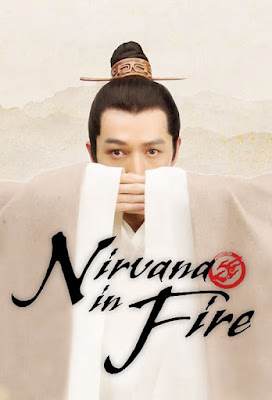 Nirvana In Fire (2015)
Nirvana In Fire (2015)Season 1, 54 episodes,
watched on Viki
Synopsis from MyDramaList
In sixth-century China, the Emperor of Great Liang orders the unjust execution of his brother-in-law Marshal Lin Xie alongside the Lin family, his 70,000 army soldiers, and Crown Prince Qi.
Secretly surviving the massacre is Lin Xie's son, Lin Shu, who undergoes medical treatment that changes his appearance entirely and leaves him in a weakened state, unable to ever perform martial arts again. Lin Shu changed his name to Mei Chang Su and later became the chief of the pugilist world and established the Jiangzuo Alliance.
Twelve years later, Mei Chang Su returns to the capital with a secret plan after being sought after by Prince Yu and Prince Xian during their fight for the throne. He decides to covertly assist Prince Jing, the unfavoured son of the Emperor, and wisely rids the court of all scheming officials.
~~ Adapted from the novel "Lang Ya Bang" (琅琊榜)
by Hai Yan (海宴).
8.5/10* * *
This is an old classic, folks! And it still rocks.
I had Nirvana in Fire on my watchlist for awhile because a couple of the reviewers of Chinese drama I follow and respect look at this series as the golden standard. Mei Changsu's name (the main character) is very often thrown around as an example of how something should be done as well.
Having watched all the episodes, I can confirm that this was epic. It looks a bit outdated with makeup choices but overall it aged beautifully.
The plot is an extremely complicated retribution story. Mei Changsu literally had to reinvent himself after surviving the betrayal and massacre of most of his clan. Being poisoned by a rare Frostfire poison 13 years ago, his treatment involved turning him into a completely unrecognisable face with no ability to practice martial arts and a weak constitution extremely susceptible to cold and with a very shortened lifespan.
However, his brilliant mind stayed as sharp as ever, and in 13 years he created an enormous intelligence network and put together a very long game to receive retribution for the family and friends he lost at the hands of the most powerful figures in Great Liang, his country.
Fortunately, once the plan is put into motion, he collects allies one by one to achieve the common goal, and many of them have insane martial arts skills. The fight scenes here, folks, are so fine, it's a pleasure to watch. No special effects apart from wire work and actor's skills. Very old-fashioned.
The plot is so tight as well. Every part is necessary, there are no fillers, every scene serves the overall picture. It's a type of Count of Monte-Cristo story, but it's deeper than a simple desire for revenge. Mei Changsu and his allies, many of whom recognise who he is along the way, set to cleanse their country of corruption and greed and put on the throne a good person.
One of the funniest, best characters in the drama is Fei Liu, Mei Changsu's teenage bodyguard. He is moody and childish but freakishly talented, and he is played by Wu Lei/ Leo Wu, whose many more recent dramas I've enjoyed very much because he is a really great actor (The Long Ballad or Love Like The Galaxy, for example).
At last, there hardly any stupid or silly characters here. Most of them are smart and resourceful, whether they are striving for greed and power or for benefit of the country. That's why Mei Changsu's game turns out to be so suspenseful and engaging to follow.
I have started Season 2, but it's a different timeline a couple of generations in the future, so I have not found yet if it'll measure up to this season. Overall, much recommended! This was so good!
Historical Fantasy Audiobook Review: The Midnight Bargain by C.L. Polk
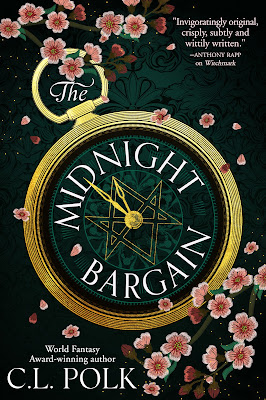 The Midnight Bargain by C.L. Polk
The Midnight Bargain by C.L. Polkbought on Audible
Synopsis from Goodreads
Beatrice Clayborn is a sorceress who practices magic in secret, terrified of the day she will be locked into a marital collar that will cut off her powers to protect her unborn children. She dreams of becoming a full-fledged Magus and pursuing magic as her calling as men do, but her family has staked everything to equip her for Bargaining Season, when young men and women of means descend upon the city to negotiate the best marriages. The Clayborns are in severe debt, and only she can save them, by securing an advantageous match before their creditors come calling.
In a stroke of luck, Beatrice finds a grimoire that contains the key to becoming a Magus, but before she can purchase it, a rival sorceress swindles the book right out of her hands. Beatrice summons a spirit to help her get it back, but her new ally exacts a price: Beatrice’s first kiss . . . with her adversary’s brother, the handsome, compassionate, and fabulously wealthy Ianthe Lavan.
The more Beatrice is entangled with the Lavan siblings, the harder her decision becomes: If she casts the spell to become a Magus, she will devastate her family and lose the only man to ever see her for who she is; but if she marries—even for love—she will sacrifice her magic, her identity, and her dreams. But how can she choose just one, knowing she will forever regret the path not taken?
8.5/10* * *
The Midnight Bargain reminded me of other two authors writing about magical England, Mary Robinette Kowal and Stephanie Burgis.
I listened to it on audio, and it struck me straight away at how atmospheric it was. Gorgeous world-building, almost cinematic at how vivid it is. The heroine and her friend's emotions at times felt like I was reading a middle-grade book, they were so desperate and dramatic, but it didn't detract from the validity of their feelings.
The girls were fighting for their right to do magic and not get married which would have suffocated them and their gifts (that collar which married women were supposed to wear until they could not bear children anymore was truly horrendous).
The love interest was sweet but didn't have as much personality as the girls, but the most delightful thing about the plot was Nadi, the lesser spirit who was helping Beatrice.
Nadi, the spirit of luck was amazing! It was her who was forcing Beatrice to be daring and get out of her comfort zone. She wanted her to dance on the sand barefoot and steal a kiss, get drunk and feel the sunrise. These were all the bargains between the two, because spirits are devoid of sensations but can feel them when riding humans.
There were many dramatic moments and the book felt pretty fast-paced to me on audio. I am kind of gutted it's a standalone. I would have liked to read more of Beatrice and Co.'s adventures.
Overall, a lovely, magical read! I can recommend it to the readers of this blog without any hesitation.
Contemporary Romance Chinese Drama Review: The Rational Mind (2021)
 The Rational Life (2021)
The Rational Life (2021)35 episodes, watched on Netflix
Synopsis from MyDramaList
Shen Ruo Xin is a professional career woman in her 30s and she has to navigate through many things in her life. From swimming through the cesspool of office politics with its nepotism, sabotage and company problems, to withstanding familial pressure to settle down and marry, to handling suitors interested in her for their own selfish personal motives, to being counsellor and mentor to her best friend and her juniors, she is one busy lady but watch as she handles them all with great aplomb while managing to find romance in an unexpected place.
8/10* * *
This was on my watchlist for awhile due to an enthusiastic review from a cdrama review channel I follow, and I'm glad I gave it a go.
First of all, Dylan Wang is a cutie. If you watched him in Meteor Garden or a very recent Love Between A Fairy and A Devil (both on Netflix, by the way), you'll know he is a good actor as well.
Secondly, the topic of May-December romance (older woman - younger man) has been really popular in cdrama world in recent years. I read that there is a specific social problem related to that. China stopped its one child policy around 10 years ago and during that policy there were more boys born than girls because culturally boys will stay in the family and look after the parents while girls would marry off into another family. Over the generations, it created a shortage of girls available. And that's why larger gaps in age between partners are becoming more socially acceptable. Again, this is an opinion, so what I'm writing here can be completely wrong. If that's the case, then don't bash me for it.
This is a very solid 4 star watch. It has strong independent, female empowering message. It accentuates the problems women over 30 face in Chinese society. There is a generational clash between the heroine and her mother, but throughout all of this there is plenty of warmth in half a dozen of various relationships.
A lot of Chinese dramas would play on romance clichés, but The Rational Life subverts it all. Instead of cartoonish villains and heroes there are normal people who make mistakes, go astray, swim in grey area of socially acceptable behaviour and either snap out of it or get their comeuppance.
For example, the guy Shen Ruoxin dates in the beginning, is meek and cowardly. In order to keep her from breaking up with him, he proposes to her in public and sends the video to their company, surveils her phone and even post a negative video of her anonymously online which allows her boss to demote her to promote his own nephew in her spot. All of this to push her to rely on him and to marry him.
She deals with it by confronting the guy and gives him a choice what to do next with himself. His shame at the consequences to her actually puts him on the right track. There are a lot of moments where you'd think the character is going to cause trouble but it just behaves like a mature adult and leaves you pleasantly surprised.
I enjoyed The Rational Life. It was kind and, well, rational. The main characters are cute together and do feel like a great fit to compliment each other's strengths. Recommended.

Recent comments